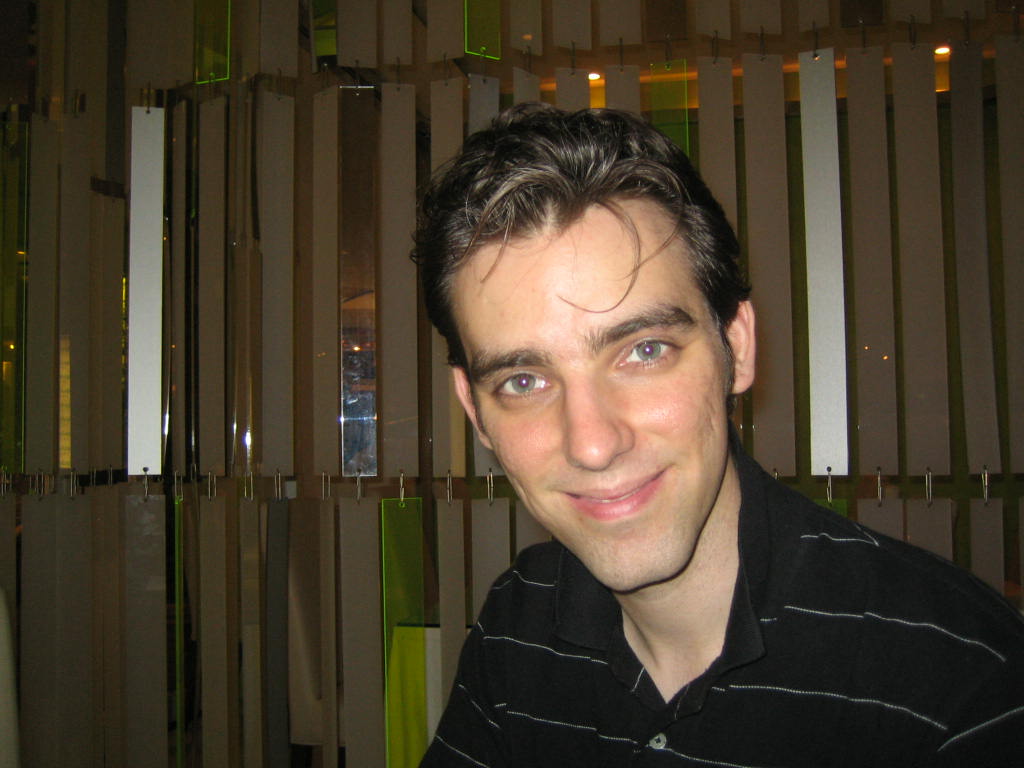Hello,
This is my first post here. I suspect that I won't post often. Most of my opinions are not well received.
I have been terrified of death since the the age of 10. At that age, in the simplistic mind of a 10 year old, I nevertheless came to understand death and religion in an intimate way. I saw religion from two points of view...as a means for some to explain the unexplainable, but mostly as a way that humans comfort their selves in the face of their mortality. It was a hard and traumatic vision that confronted me that night, because I suddenly saw myself in a world where I honestly believed myself to be sane in a world populated by those who are insane.
In the ensuing years, I have often wondered if I could have been wrong. I have often examined...and tried...many different religions. The only one that I feel has any merit is Buddhism, and that, only because it is not really a religion in the strict sense of the word. But even Buddhism is rife with dogma and unfulfilling to me.
With the advances in medical science that I have seen over the years, and the corresponding lengthening of average life-spans, I have thought that it was possible that there are humans alive today who will never die. I have thought that if one could hold on long enough that there was a chance...albeit slim...that the discovery would come that would erradicate the fear of death.
I have looked at the diseases of cancer and HIV with great interest. I have considered that both of these maladies could, in a certain way, be considered the saviors of mankind. Because, when we are able to cure cancer, we will have fully deciphered and mastered the human genome, and when we erradicate HIV, we will have mastered the human immune system. I understand that this is an oversimplification, but in gist, I think there is some degree of truth there.
I can understand the necessary precautions that should accompany genetic, and other biological research. We don't want to unleash a man-made plague that will cause our extinction. However, it seems to me that many of the restrictions that are placed on medical research are not for the sake of safety, but rather because there are people who think that we should be careful not to offend some alleged supernatural being as postulated by their religious beliefs.
Until recently, I had begun to think that logic and reason were beginning to hold sway with public opinion. But since the events of 9/11 I have been alarmed at the religous backlash that has swept not just the United States, but, it seems, the entire world. This worries me. I have been particularly upset with President Bush and his religious agenda. In response, my knee-jerk reaction was to create some 3D artwork that attacked religous figures and, also, over several months, I wrote an article for myself that codifies my thinking. Then, I further developed that article into a...I don't know how to describe it...dissertation(?) that I have shown in a few places. The responses I have received to that paper have been...heated.
At the end of this posts, I will attach that paper. I would appreciate it if anyone here could tell me what is so offensive about it. I can understand why religious-minded people would find it uncomfortable, but I am unable to fathom why atheists and agnostics have taken such offense to it.
I do not understand why seemingly intelligent people continue to willingly cast themselves into the abyss of death when we have created, or will soon create, for ourselves, an alternative. I do not understand why these people feel that their personal beliefs in this matter should be incumbent upon those of us who wish to seek an alternative. I don't have a problem with them dying if that is what they believe their religion requires. I don't have a religion, and feel that their personal opinions should not be a criteria in my decisions regarding life or death.
Thank you for your consideration,
Zaara
========================
THE FOUR QUESTIONS
===================
In the course of a human lifetime, every human, to a greater or lesser degree of sincerity and fervor, will attempt to answer for their self, Four Questions. The questions may be phrased differently, or couched in other contexts, due to one's local language, heritage, and society. But the questions are still the same, and every human, during the course of their lifetime will attempt to answer these questions for their self. The questions are:
Question #1 - Who, or what, am I?
Question #2 - Where did I come from, what was the state of my existence, before I was born?
Question #3 - What will happen to me, what will be the state of my existence, when I die?
Question #4 - If I was born, only to live, experience pleasure, pain, health, sickness, old-age, infirmity and death, then what is the purpose of my existence?
In the course of a human lifetime, every human to greater or lesser degree of sincerity and fervor, will attempt to answer those Four Questions...FOR THEIR SELF! One answer's may be influenced by culture and heritage. One's answers may be influenced by things heard from others. One's answers may be influenced by things that one reads. One's answers may be influenced by the circumstances and events of one's life. But, ultimately, every human answers those Four Questions in their own mind...alone!
No one can answer those Four Questions for another!
No one has ever been able to answer those Four Questions for another!
No one will ever be able to answer those Four Questions for another!
And more...
No one has the right to TRY to answer those Four Questions for another.
No one has ever had the right to try to answer those Four Questions for another.
And...
No one will EVER have the right to try to answer those Four Questions for another!
One may doubt that the Four Questions are the REAL absolute truth of human existence. But, this is how and when all humans come to know, for their self, that the Four Questions are the REAL absolute truth of human existence:
It happens at night, when one is in bed, and the room is dark, and their eyes are closed, but they are not yet asleep. At this time, we, as humans, allow our minds to drift...through the events of our day, through our memories, into our futures. Sometimes, when we are troubled, we allow our minds to drift to darker places...to the places where we have placed the Four Questions, and our answers to them. And we begin to ponder...
"Have I been a good person?"
"Have I been such a terribly bad person?"
"Do I deserve such a horrific punishment?"
"Have I earned The Great Reward?"
***** "Are those stories real?" *****
And THAT is the instant when we all know...whether we admit it to others or not... that the Four Questions are the REAL absolute truth of human existence!
Every human alive on this planet...every human who has ever been alive on this planet...every human who will ever be alive on this planet...asks of their self The Four Questions. Next to our DNA, it is the most common aspect that defines our humanity! We all ask ourselves...These...Four...Questions! The Four Questions are the basis for every religion and human philosophy that exists, has ever existed, or will ever exist on this planet. And, since Atheists, Agnostics, and practicers of Non-Monotheistic religions ask these same questions of their selves, then Atheism, Agnosticism and Non-Monotheism are, in fact, religious expressions, and are as deserving of respect as any other religion!
One's answers to the Four Questions, are NOT the absolute truth of human existence. MY answers to the Four Questions are not the absolute truth of human existence. Our answers to the Four Questions are only our answers. And our answers are not, nor ever will be, the absolute truth of human existence. One's religion is NOT the absolute truth of human existence. The absolute truth of human existence is The Four Questions!
THIS is what religion REALLY is:
Religion is...one's hopes...desires...fears...agonies...and angers. One's religion is also a most profound and sincere expression of gratitude and joy to whatever forces of creation one may hold sacred. One's religion is also a gift that is offered to others, that though we may not share the same vision of our answers to the Four Questions, we may ALL share in our collective joy for existence! We accept theses gifts from others as COURTESIES so that we should not feel compelled to destroy each other over the Four Questions.
To refuse, rebuke, or belittle these gifts from others is an insult...and the greatest SIN that any human can commit against another!
========================


















































